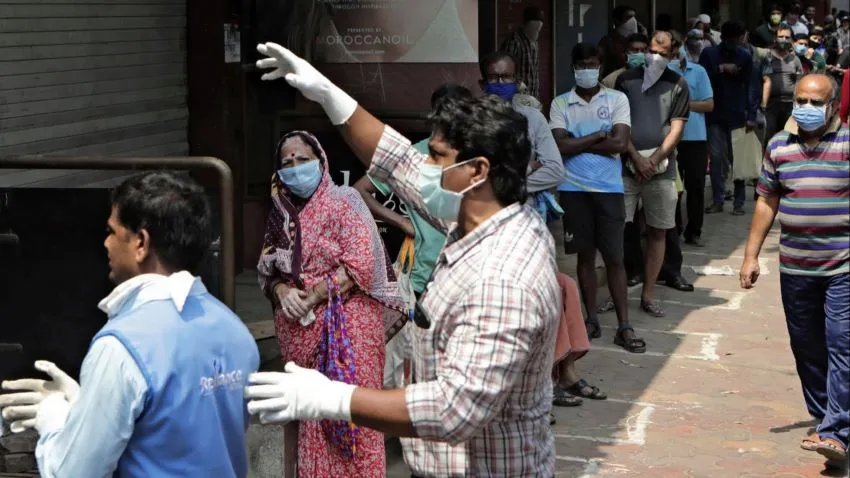
India's decision to lock down all 1.3 billion residents for 21 days has brought the nation's economy and supply chains to a standstill, leaving certain areas short of food and other necessities.
"Social distancing is the only way we can curb the virus," Prime Minister Narendra Modi said on television Tuesday, giving Indians just four hours before enacting what he called a "total ban" on leaving their homes.
The unprecedented move affects what amounts to nearly 20% of the world's population. By comparison, China's lockdown of the city of Wuhan, where the coronavirus pandemic originated, affected just 11 million -- less than 1% of the Indian ban.
Businesses outside of essential sectors -- food, pharmaceuticals, utilities, communications and financial services -- have been forced to close. Modi stressed that he would ensure the public's access to necessities under the lockdown. But given almost no time to prepare, citizens are scrambling to cope with their new reality.
"The shelves were empty when I got here," a shopper in her 30s griped at a supermarket in Mumbai on Friday. The store was handing out tickets to limit the number of customers inside at any given time, and no fresh vegetables were left when her turn came. Many shops also have painted their floors to indicate where customers should stand, so they remain far enough apart.
Concerns also exist that deliveries of hand sanitizer and chronic disease medication are getting held up in the chaos. Police set up numerous roadblocks that can cause extended delays, especially with no clear guidelines on what documentation these shipments require.
"Pharmaceutical deliveries are two to three days behind schedule," an industry insider said.
Indian consumers could not buy 43% of what they needed at brick-and-mortar stores and 61% on online platforms, a poll conducted by local media last week found. Both figures have roughly doubled since the lockdown began.
Supply chains across India no longer are functioning, with interstate truck deliveries running into problems, said Pranjul Bhandari, HSBC chief India economist. But some say food supply chains started to recover over the weekend, particularly in urban areas.
Modi acknowledged that the lockdown was an extreme measure with severe economic costs. But he went ahead, largely due to concerns over the country's ability to handle a pandemic.
India has 0.8 doctors per 1,000 inhabitants, compared with 4.3 in Germany, 4 in Italy, 2.6 in the U.S. and 2.4 in Japan, the Organization for Economic Cooperation and Development says. Medical spending per capita is also low at $209 annually, roughly 2% of the American figure.
The South Asian country has few hospitals that can provide advanced care. Just over 160 facilities nationwide are capable of testing for the coronavirus, the Indian Council of Medical Research said. Some states have just a handful, despite populations of nearly 100 million.
"Most medical services in India are designed with low-income patients in mind," said one medical industry source. "Treating the coronavirus has been a lot of trial and error."
India's confirmed coronavirus cases climbed to 1,024 as of Sunday, the health ministry said. But some think the count, which is significantly lower than in the U.S. and many European nations, is simply the result of inadequate testing. A widespread outbreak in one of the world's most populated nations could prove catastrophic.
"Italy and the U.S. have been unable to contain the virus despite having the best health care in the world," Modi said, calling the lockdown a "social experiment" for India. Whether the experiment succeeds remains to be seen.




















